#john henry fuseli
Text

Not again 😩
(the painting is "Ezzelin and Meduna" (1779) by John Henry Fuseli)
#i'll stop making memes about the hole when i stop coming up with them#critical role#critrole#critrole memes#cr3#cr c3#bells hells#bell's hells#art meme#john henry fuseli#the hole#just casually walking around with a mass grave in their back pocket#cr memes#cr shitpost#courtesy of me#cr campaign three#crit role#critrole meme#this painting has always been so funny to me#he looks so put upon by his situation
63 notes
·
View notes
Photo

Silence by John Henry Fuseli, 1799-1801
82 notes
·
View notes
Photo


Florence + The Machine - Delilah (2015), dir. Vincent Haycock/John Henry Fuseli - The Nightmare
16 notes
·
View notes
Text



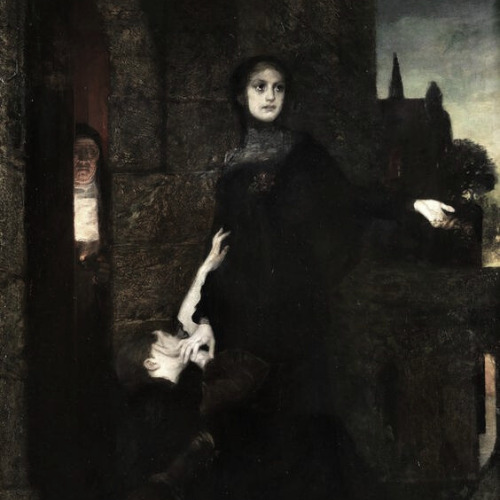





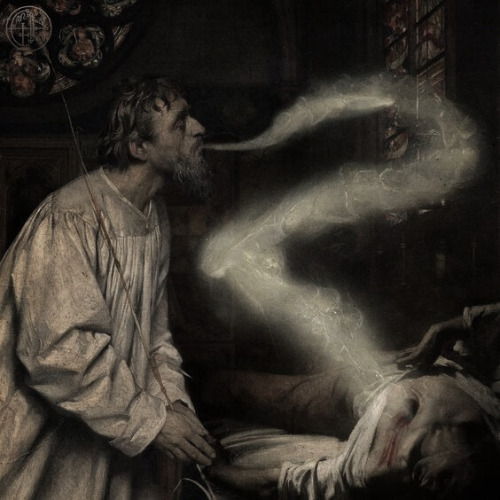
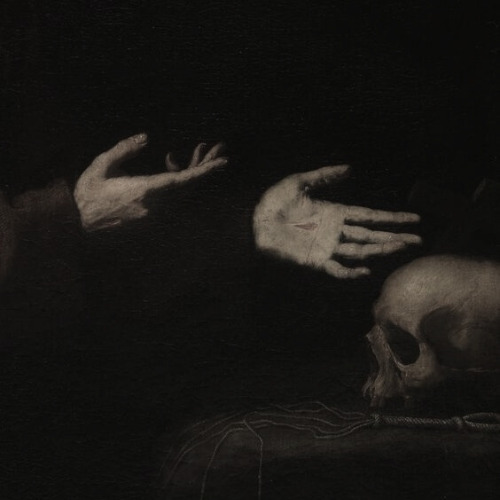
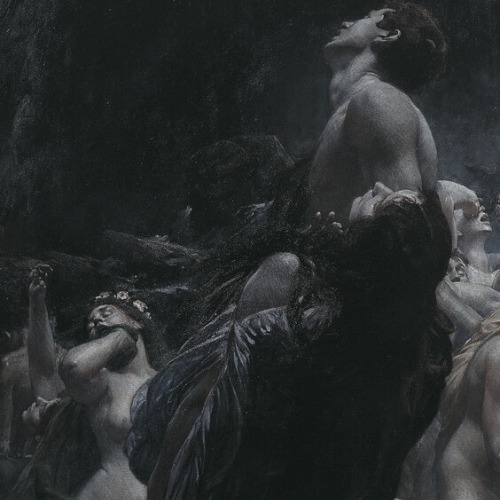
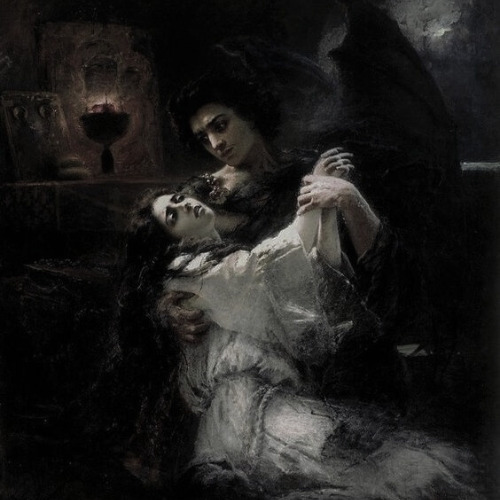



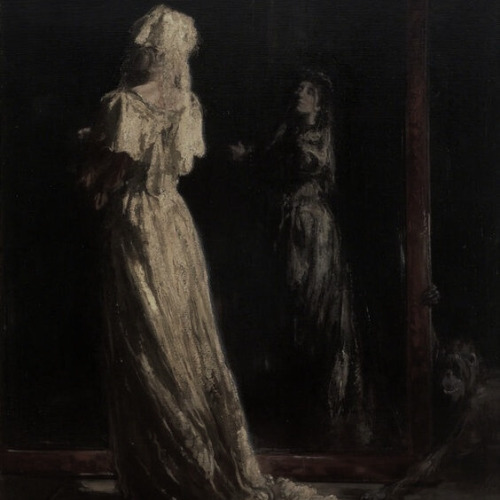
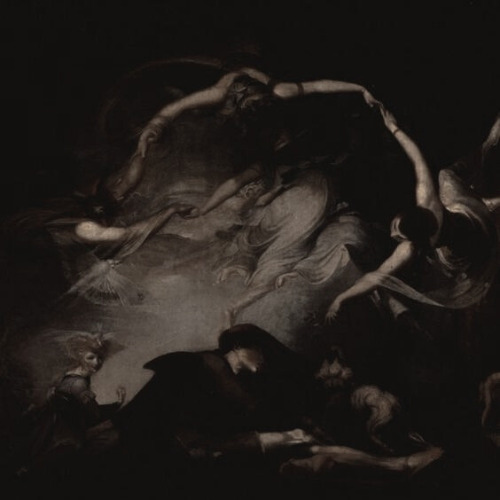
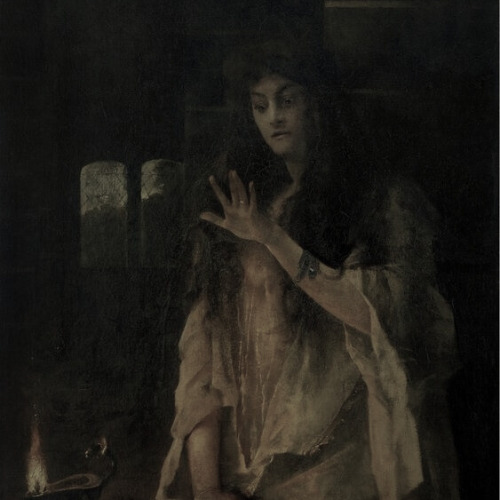



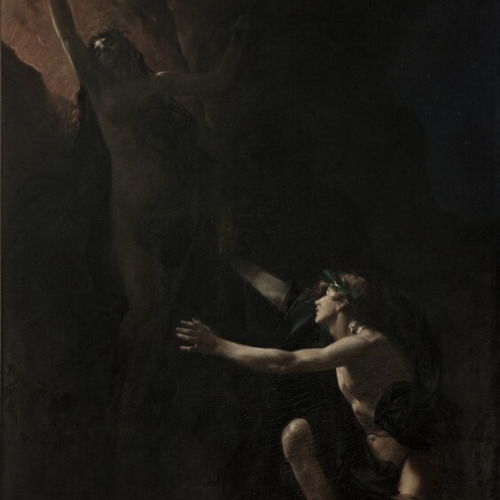


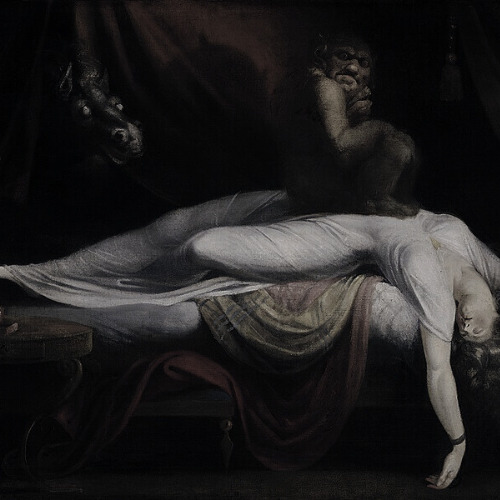
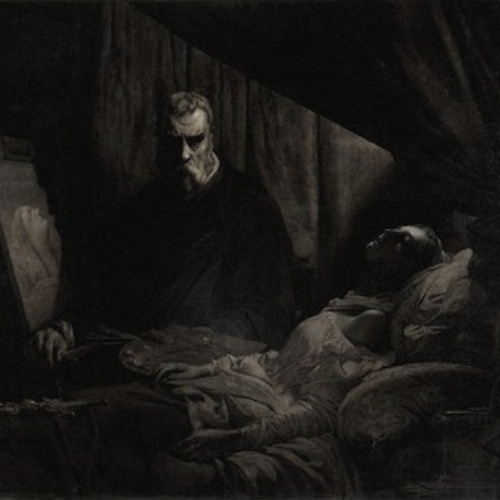
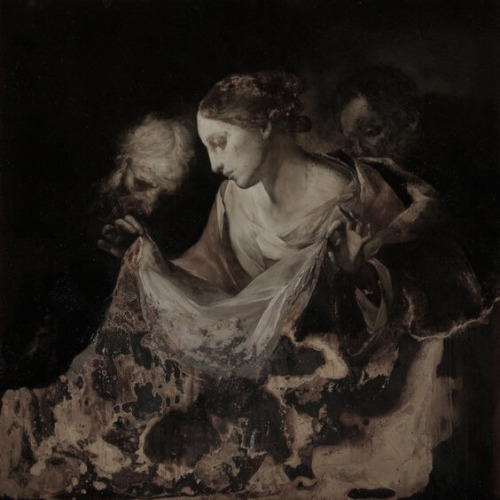

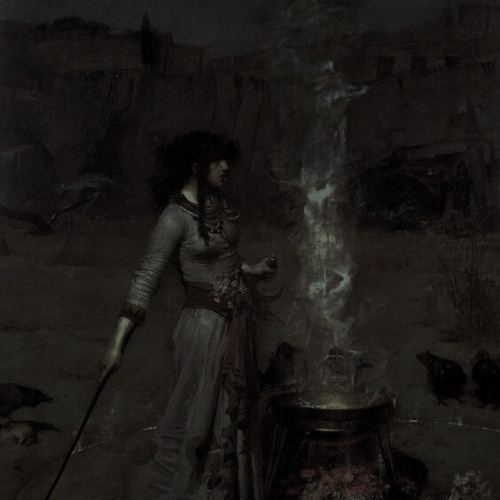
art aesthetics: gothic
#artist is carl gustav carus#artist is george roux#artist is carl gustav carus-#artist is ferdinand keller#artist is sebastian pether#artist is adolph von menzel#artist is daniel sayre groesbeck#artist is carlo dolci#artist is jose benlliure y gil#artist is pierre jean van der ouderaa#artist is jusepe de ribera#artist is adolf hiremy-hirschl#artist is jonstantin makovsky#artist is francesco cairo#artist is serafino macchiati#artist is jusepe de ribera-#artist is sir william nicholson#artist is henru fuseli#artist is alfred stevens#artist is jean-francois portaels#artist is cecco bravo#artist is piotr stachiewicz#artist is alexandre serres#artist is francesco del cairo-#artist is henri leopold levy#artist is henry fuseli-#artist is tintoretto#artist is nicola samori#artist is ferdinand knab#artist is john williams waterhouse
684 notes
·
View notes
Text
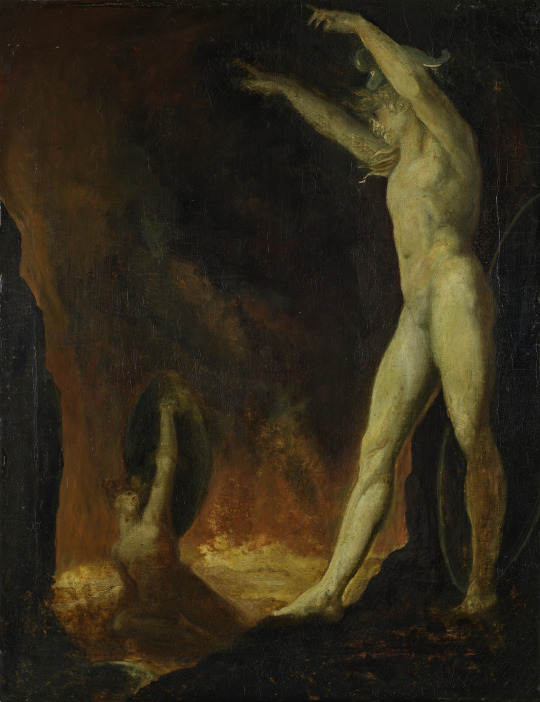
#art#painting#oil on canvas#romanticism#paradise lost#john milton#Zürich#satan#satan summoning his legions#1800#dramatic#epic#english literature#literature#poetry#epic poems#johann heinrich füssli#henry fuseli
281 notes
·
View notes
Photo
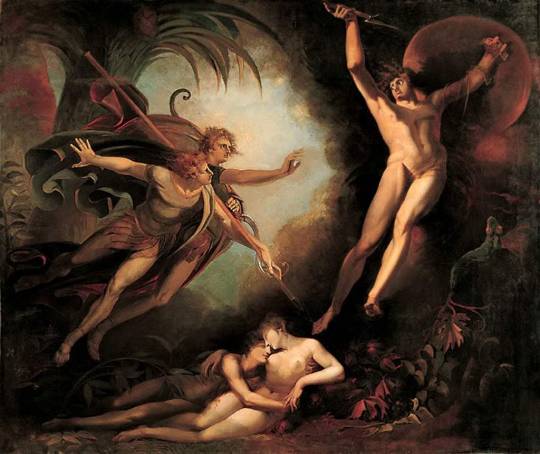
Henry Fuseli, Satan Starts from the Touch of Ithuriel's Spear, 1779, oil on canvas, 230.5 x 276.3 cm, Staatsgalerie Stuttgart.
16 notes
·
View notes
Text



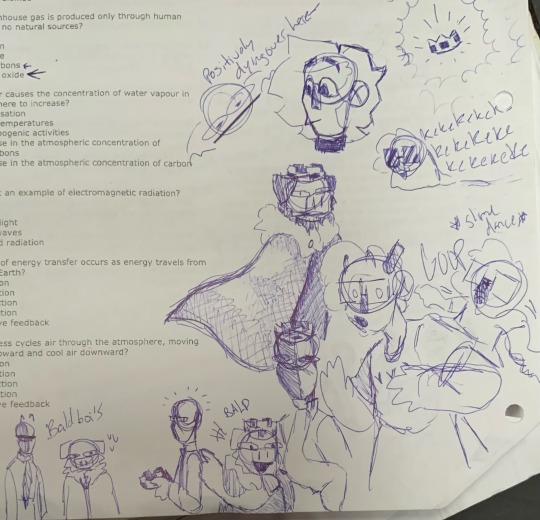





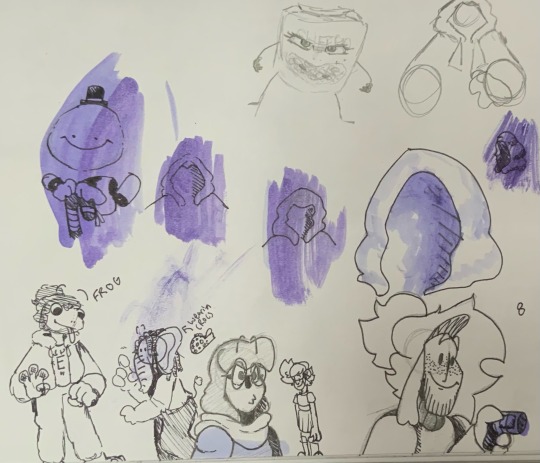
Sum doods over the past….. 2 weeks—
Also I am sorry if any of these are repeats I am too lazy right now to check—
#those 2 portraits are actually stuff from my art class—#but I like how they turned out so—#also papaya doggo—#first time actually drawing him like this—#only ever had it in my brain-#the look is just from my thing where paps is a wizard#so when both he and toby get a lot of bad emotions#instead of toby fusing with paps object to s and paps fuse together#which causes a lot of chaos—#2 brains both with not so good feelings and povs#bdhdhej ANYHOW-#have a good day#my drawings#school doods#meh#papyrus#john#henry#Beth#mosiac#ranboo#slimecicle#technoblade#alphys#undyne#toriel#asgore#sans#frisk#mettaton
8 notes
·
View notes
Text


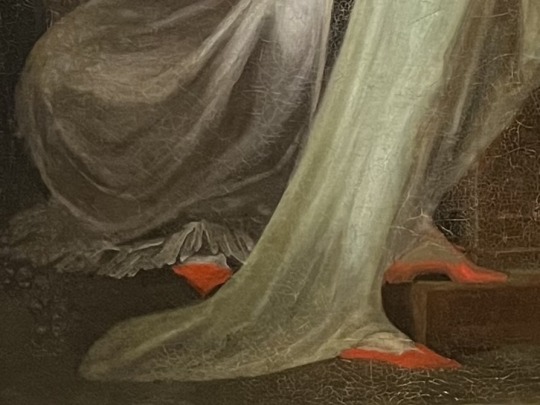
henry fuseli. milton dictating to his daughter. 1793.
details.
0 notes
Text
The true post-cyberpunk hero is a noir forensic accountant

I'm touring my new, nationally bestselling novel The Bezzle! Catch me in TOMORROW (Apr 17) in CHICAGO, then Torino (Apr 21) Marin County (Apr 27), Winnipeg (May 2), Calgary (May 3), Vancouver (May 4), and beyond!

I was reared on cyberpunk fiction, I ended up spending 25 years at my EFF day-job working at the weird edge of tech and human rights, even as I wrote sf that tried to fuse my love of cyberpunk with my urgent, lifelong struggle over who computers do things for and who they do them to.
That makes me an official "post-cyberpunk" writer (TM). Don't take my word for it: I'm in the canon:
https://tachyonpublications.com/product/rewired-the-post-cyberpunk-anthology-2/
One of the editors of that "post-cyberpunk" anthology was John Kessel, who is, not coincidentally, the first writer to expose me to the power of literary criticism to change the way I felt about a novel, both as a writer and a reader:
https://locusmag.com/2012/05/cory-doctorow-a-prose-by-any-other-name/
It was Kessel's 2004 Foundation essay, "Creating the Innocent Killer: Ender's Game, Intention, and Morality," that helped me understand litcrit. Kessel expertly surfaces the subtext of Card's Ender's Game and connects it to Card's politics. In so doing, he completely reframed how I felt about a book I'd read several times and had considered a favorite:
https://johnjosephkessel.wixsite.com/kessel-website/creating-the-innocent-killer
This is a head-spinning experience for a reader, but it's even wilder to experience it as a writer. Thankfully, the majority of literary criticism about my work has been positive, but even then, discovering something that's clearly present in one of my novels, but which I didn't consciously include, is a (very pleasant!) mind-fuck.
A recent example: Blair Fix's review of my 2023 novel Red Team Blues which he calls "an anti-finance finance thriller":
https://economicsfromthetopdown.com/2023/05/13/red-team-blues-cory-doctorows-anti-finance-thriller/
Fix – a radical economist – perfectly captures the correspondence between my hero, the forensic accountant Martin Hench, and the heroes of noir detective novels. Namely, that a noir detective is a kind of unlicensed policeman, going to the places the cops can't go, asking the questions the cops can't ask, and thus solving the crimes the cops can't solve. What makes this noir is what happens next: the private dick realizes that these were places the cops didn't want to go, questions the cops didn't want to ask and crimes the cops didn't want to solve ("It's Chinatown, Jake").
Marty Hench – a forensic accountant who finds the money that has been disappeared through the cells in cleverly constructed spreadsheets – is an unlicensed tax inspector. He's finding the money the IRS can't find – only to be reminded, time and again, that this is money the IRS chooses not to find.
This is how the tax authorities work, after all. Anyone who followed the coverage of the big finance leaks knows that the most shocking revelation they contain is how stupid the ruses of the ultra-wealthy are. The IRS could prevent that tax-fraud, they just choose not to. Not for nothing, I call the Martin Hench books "Panama Papers fanfic."
I've read plenty of noir fiction and I'm a long-term finance-leaks obsessive, but until I read Fix's article, it never occurred to me that a forensic accountant was actually squarely within the noir tradition. Hench's perfect noir fit is either a happy accident or the result of a subconscious intuition that I didn't know I had until Fix put his finger on it.
The second Hench novel is The Bezzle. It's been out since February, and I'm still touring with it (Chicago tonight! Then Turin, Marin County, Winnipeg, Calgary, Vancouver, etc). It's paying off – the book's a national bestseller.
Writing in his newsletter, Henry Farrell connects Fix's observation to one of his own, about the nature of "hackers" and their role in cyberpunk (and post-cyberpunk) fiction:
https://www.programmablemutter.com/p/the-accountant-as-cyberpunk-hero
Farrell cites Bruce Schneier's 2023 book, A Hacker’s Mind: How the Powerful Bend Society’s Rules and How to Bend Them Back:
https://pluralistic.net/2023/02/06/trickster-makes-the-world/
Schneier, a security expert, broadens the category of "hacker" to include anyone who studies systems with an eye to finding and exploiting their defects. Under this definition, the more fearsome hackers are "working for a hedge fund, finding a loophole in financial regulations that lets her siphon extra profits out of the system." Hackers work in corporate offices, or as government lobbyists.
As Henry says, hacking isn't intrinsically countercultural ("Most of the hacking you might care about is done by boring seeming people in boring seeming clothes"). Hacking reinforces – rather than undermining power asymmetries ("The rich have far more resources to figure out how to gimmick the rules"). We are mostly not the hackers – we are the hacked.
For Henry, Marty Hench is a hacker (the rare hacker that works for the good guys), even though "he doesn’t wear mirrorshades or get wasted chatting to bartenders with Soviet military-surplus mechanical arms." He's a gun for hire, that most traditional of cyberpunk heroes, and while he doesn't stand against the system, he's not for it, either.
Henry's pinning down something I've been circling around for nearly 30 years: the idea that though "the street finds its own use for things," Wall Street and Madison Avenue are among the streets that might find those uses:
https://craphound.com/nonfic/street.html
Henry also connects Martin Hench to Marcus Yallow, the hero of my YA Little Brother series. I have tried to make this connection myself, opining that while Marcus is a character who is fighting to save an internet that he loves, Marty is living in the ashes of the internet he lost:
https://pluralistic.net/2023/05/07/dont-curb-your-enthusiasm/
But Henry's Marty-as-hacker notion surfaces a far more interesting connection between the two characters. Marcus is a vehicle for conveying the excitement and power of hacking to young readers, while Marty is a vessel for older readers who know the stark terror of being hacked, by the sadistic wolves who're coming for all of us:
https://www.youtube.com/watch?v=I44L1pzi4gk
Both Marcus and Marty are explainers, as am I. Some people say that exposition makes for bad narrative. Those people are wrong:
https://maryrobinettekowal.com/journal/my-favorite-bit/my-favorite-bit-cory-doctorow-talks-about-the-bezzle/
"Explaining" makes for great fiction. As Maria Farrell writes in her Crooked Timber review of The Bezzle, the secret sauce of some of the best novels is "information about how things work. Things like locks, rifles, security systems":
https://crookedtimber.org/2024/03/06/the-bezzle/
Where these things are integrated into the story's "reason and urgency," they become "specialist knowledge [that] cuts new paths to move through the world." Hacking, in other words.
This is a theme Paul Di Filippo picked up on in his review of The Bezzle for Locus:
https://locusmag.com/2024/04/paul-di-filippo-reviews-the-bezzle-by-cory-doctorow/
Heinlein was always known—and always came across in his writings—as The Man Who Knew How the World Worked. Doctorow delivers the same sense of putting yourself in the hands of a fellow who has peered behind Oz’s curtain. When he fills you in lucidly about some arcane bit of economics or computer tech or social media scam, you feel, first, that you understand it completely and, second, that you can trust Doctorow’s analysis and insights.
Knowledge is power, and so expository fiction that delivers news you can use is novel that makes you more powerful – powerful enough to resist the hackers who want to hack you.
Henry and I were both friends of Aaron Swartz, and the Little Brother books are closely connected to Aaron, who helped me with Homeland, the second volume, and wrote a great afterword for it (Schneier wrote an afterword for the first book). That book – and Aaron's afterword – has radicalized a gratifying number of principled technologists. I know, because I meet them when I tour, and because they send me emails. I like to think that these hackers are part of Aaron's legacy.
Henry argues that the Hench books are "purpose-designed to inspire a thousand Max Schrems – people who are probably past their teenage years, have some grounding in the relevant professions, and really want to see things change."
(Schrems is the Austrian privacy activist who, as a law student, set in motion the events that led to the passage of the EU's General Data Privacy Regulation:)
https://pluralistic.net/2020/05/15/out-here-everything-hurts/#noyb
Henry points out that William Gibson's Neuromancer doesn't mention the word "internet" – rather, Gibson coined the term cyberspace, which, as Henry says, is "more ‘capitalism’ than ‘computerized information'… If you really want to penetrate the system, you need to really grasp what money is and what it does."
Maria also wrote one of my all-time favorite reviews of Red Team Blues, also for Crooked Timber:
https://crookedtimber.org/2023/05/11/when-crypto-meant-cryptography/
In it, she compares Hench to Dickens' Bleak House, but for the modern tech world:
You put the book down feeling it’s not just a fascinating, enjoyable novel, but a document of how Silicon Valley’s very own 1% live and a teeming, energy-emitting snapshot of a critical moment on Earth.
All my life, I've written to find out what's going on in my own head. It's a remarkably effective technique. But it's only recently that I've come to appreciate that reading what other people write about my writing can reveal things that I can't see.

If you'd like an essay-formatted version of this post to read or share, here's a link to it on pluralistic.net, my surveillance-free, ad-free, tracker-free blog:
https://pluralistic.net/2024/04/17/panama-papers-fanfic/#the-1337est-h4x0rs

Image:
Frédéric Poirot (modified)
https://www.flickr.com/photos/fredarmitage/1057613629 CC BY-SA 2.0
https://creativecommons.org/licenses/by-sa/2.0/
#pluralistic#science fiction#cyberpunk#literary criticism#maria farrell#henry farrell#noir#martin hench#marty hench#red team blues#the bezzle#forensic accountants#hackers#bruce schneier#post-cyberpunk#blair fix
186 notes
·
View notes
Text

FUSELI, John Henry
Dante and Virgil on the Ice of Kocythos
1774
Pen and sepia, watercolour, 390 x 274 mm
Kunsthaus, Zurich
134 notes
·
View notes
Text

Vision of the Deluge, from 'Paradise Lost' by John Milton (1608-74)
Henry Fuseli
65 notes
·
View notes
Photo
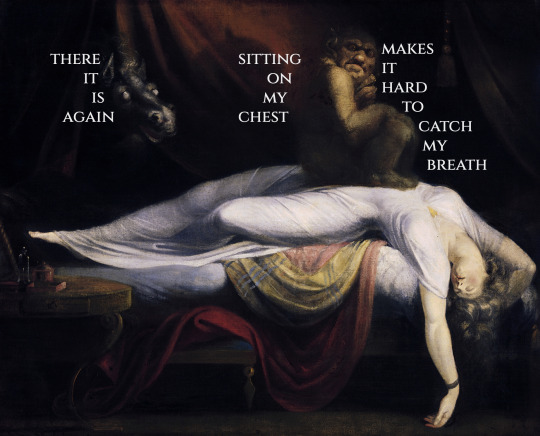
The Nightmare - John Henry Fuseli // Wish That You Were Here - Florence + the Machine
#the nightmare#wish that you were here#florence and the machine#florence + the machine#fatm#art#art history#lyrics#lyric art#charlotte's halloween celebration
194 notes
·
View notes
Text


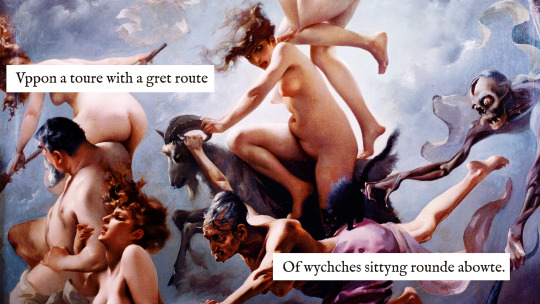
A Complaint for My Lady of Gloucester and Holland
As if in recognition of the contextual irony of this reference to Humphrey, whose affections were fixed elsewhere, the poem turns immediately to identify the villain of the story […] This "myrmade," a figure traditionally associated with sexuality and pride, is patently a reference to Eleanor Cobham, whose alliance with Humphrey had already become a public scandal. In resorting to the convenient fiction of witchcraft, Lydgate exonerated his patron for his inconstancy. Thus it was no self-indulgent luxuria which had occasioned the Duke's shameful marital mores, but witches who had worked to "bowe and tenclyne [bend and turn], / The prynces hert ageynst al right" (ll.53-4), disturbing his "noblesse," his nobility, making his heart "double," or fickle, in his loving (ll.55-6). Eleanor, a "fals Circe" (l.57), had bewitched him, sugaring the "galle" of that inappropriate liaison (l.60). Her potions had turned Humphrey "agaynst al lawe/ Frome his promesse … (ll.69-70), in a line echoing Jacqueline's letters of complaint. Significantly, the poem points to the consequences of this enchantment, "wher thorough his name and fame are lorne [/os/]" (l.73). Against this sorceress the Solitarye calls for vengeance: "… whoo supplaunte the, of equytee,/ By processe shal supplaunted be" (ll.62-3).
—C. Marie Harker, “The Two Duchesses of Gloucester and the Rhetoric of the Feminine”, Historical Reflections/Réflexions Historiques, 30.1 (n.b. the authorship of the poem is debated, it is sometimes attributed to John Lydgate).
Elisabeth Jerichau-Baumann (1873), Mermaid | Henry Fuseli (c. 1788), Prince Arthur and the Fairy Queen | Luis Ricardo Falero (1878), Vision of Faust
#eleanor cobham#humphrey duke of gloucester#edits#historyedit#historian: c. marie harker#reputation and representation#medieval literature#a complaint for my lady of gloucester and holland
25 notes
·
View notes
Text





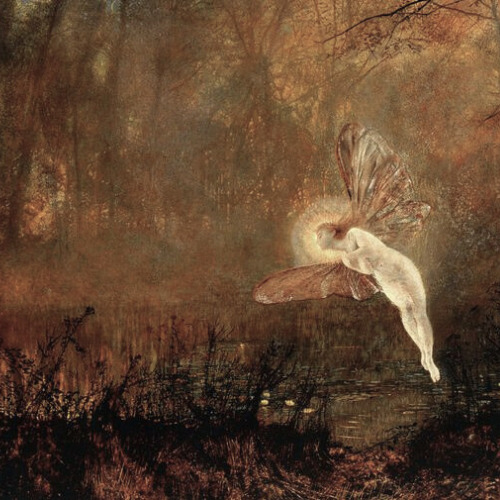

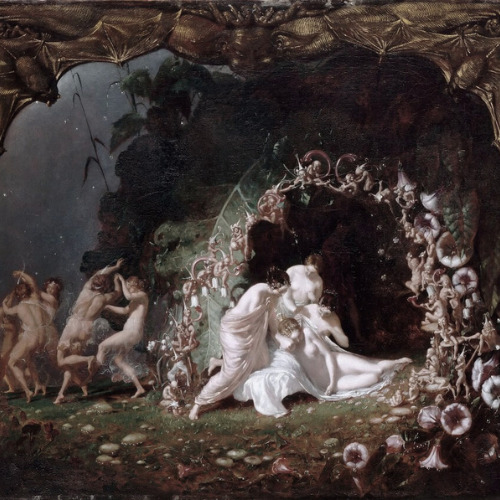

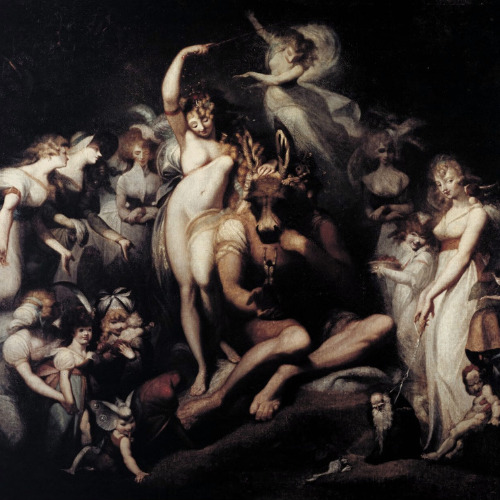


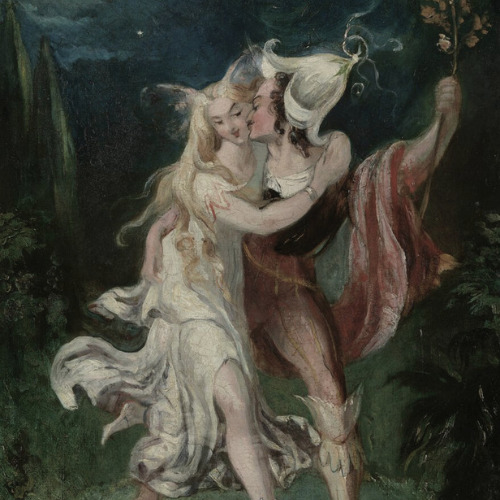
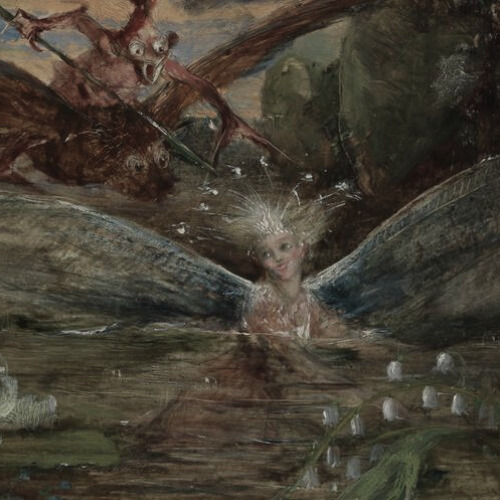
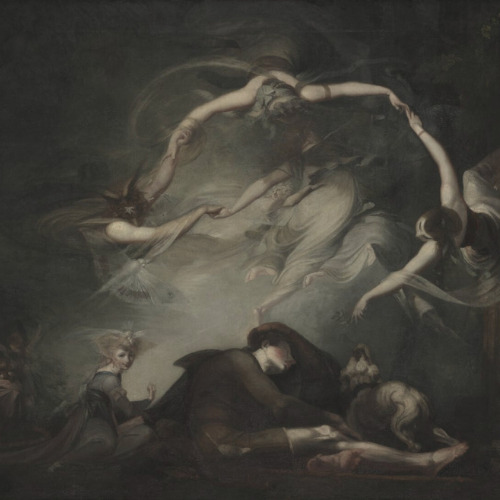


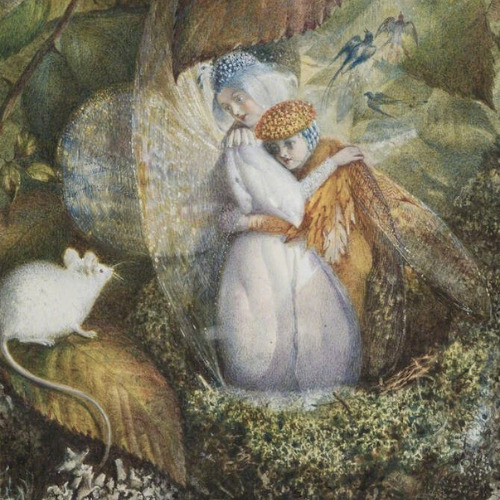
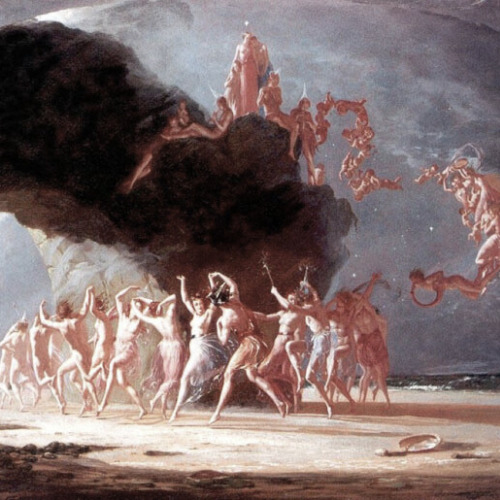


creatures in art: fairies
#artist is john quincy#artist is edward robert-hughes#artist is paul hermann wagner#artist is john atkinson grimshaw#artist is john simmons#-artist is john atkinson grimshaw#artist is gustave dore#artist is richard dadd#artist is william blake#artist is henry fuseli#artist is richard dadd-#artist is john anster fitzgerald#artist is theodor von holst#artist is john anster fitzgerald-#artist is henry fuseli-#artist is john anster fitzgerald--#artist is francis danby#artist is john anster fitzgerald--- (he really likes fairy paintings)#artist is richard dadd--#artist is cicely barker#artist is sir joseph noel paton#fairies
778 notes
·
View notes
Text
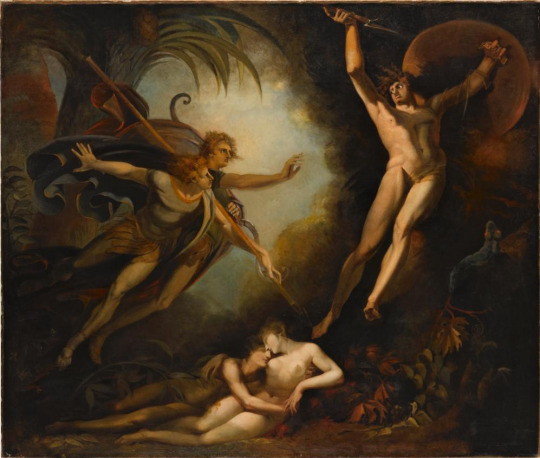
Henry Fuseli (1741-1825)
"Satan Touched by Ithuriel's Spear" (1779)
Romanticism
The painting depicts a scene from John Milton's "Paradise Lost" in which Ithuriel is one of two angels (the other being Zephon) charged by the archangel Gabriel to go in search of Satan, who is loose in the Garden of Eden. They find him lurking, in the shape of a toad, close to the ear of the sleeping Eve, attempting to corrupt her thoughts. Ithuriel touches Satan withhttps://en.wikipedia.org/wiki/Ithuriel his spear, causing him to instantly resume his true form:
Him thus intent Ithuriel with his spear
Touched lightly; for no falshood [sic] can endure
Touch of celestial temper, but returns
Of force to its own likeness: Up he starts
Discovered and surprised.
The angels then compel Satan to return with them to Gabriel.
#paintings#art#artwork#literary painting#religious painting#henry fuseli#romanticism#romantic movement#swiss artist#english literature#paradise lost#history#angels#satan#adam and eve#male figure#female figure#christianity#bible#old testament#1770s#late 1700s#late 18th century
120 notes
·
View notes
Text
This book, being about work, is, by its very nature, about violence—to the spirit as well as to the body. It is about ulcers as well as accidents, about shouting matches as well as fistfights, about nervous breakdowns as well as kicking the dog around. It is, above all (or beneath all), about daily humiliations. To survive the day is triumph enough for the walking wounded among the great many of us.
The scars, psychic as well as physical, brought home to the supper table and the TV set, may have touched, malignantly, the soul of our society. More or less. ("More or less," that most ambiguous of phrases, pervades many of the conversations that comprise this book, reflecting, perhaps, an ambiguity of attitude towards The Job. Something more than Orwellian acceptance, something less than Luddite sabotage. Often the two impulses are fused in the same person.)
It is about a search, too, for daily meaning as well as daily bread, for recognition as well as cash, for astonishment rather than torpor; in short, for a sort of life rather than a Monday through Friday sort of dying. Perhaps immortality, too, is part of the quest. To be remembered was the wish, spoken and unspoken, of the heroes and heroines of this book.
There are, of course, the happy few who find a savor in their daily job; the Indiana stonemason, who looks upon his work and sees that it is good; the Chicago piano tuner, who seeks and finds the sound that delights; the bookbinder, who saves a piece of history; the Brooklyn fireman, who saves a piece of life . . . But don't these satisfactions, like Jude's hunger for knowledge, tell us more about the person than about his task? Perhaps. Nonetheless, there is a common attribute here: a meaning to their work well over and beyond the reward of the paycheck.
For the many, there is a hardly concealed discontent. The blue-collar blues is no more bitterly sung than the white-collar moan. "I'm a machine," says the spot-welder. "I'm caged," says the bank teller, and echoes the hotel clerk. "I'm a mule," says the steelworker. "A monkey can do what I do," says the receptionist. "I'm less than a farm implement," says the migrant worker. "I'm an object," says the high-fashion model. Blue collar and white call upon the identical phrase: "I'm a robot." "There is nothing to talk about," the young accountant despairingly enunciates. It was some time ago that John Henry sang, "A man ain't nothin' but a man." The hard, unromantic fact is: he died with a hammer in his hand, while the machine pumped on. Nonetheless, he found immortality. He is remembered.
Working: People Talk About What They Do All Day and How They Feel About What They Do, Studs Terkel, 1974.
19 notes
·
View notes